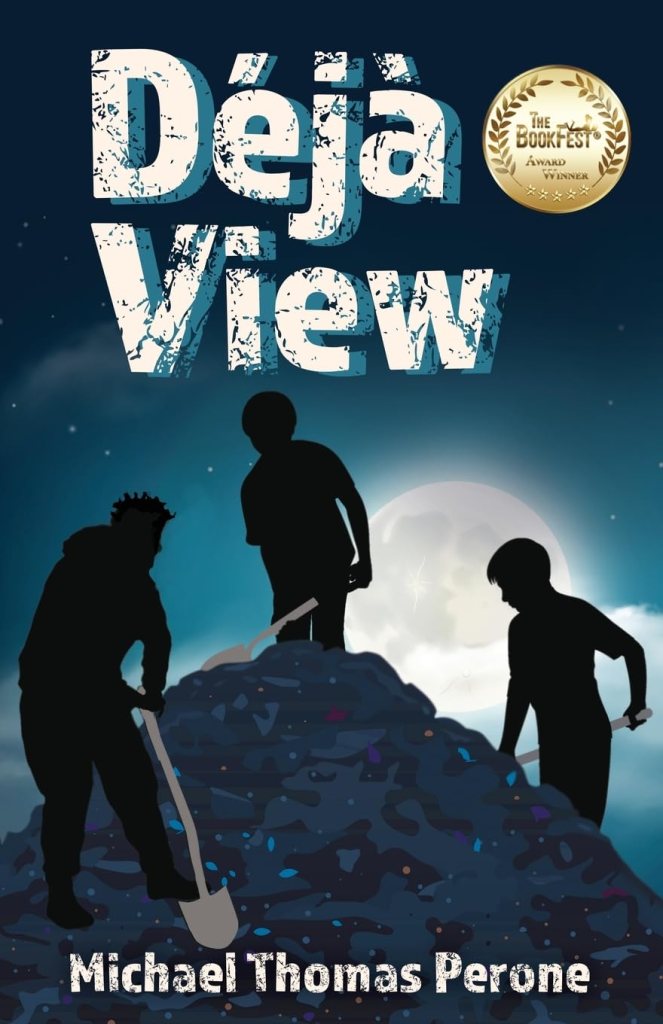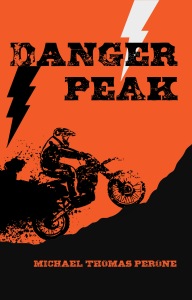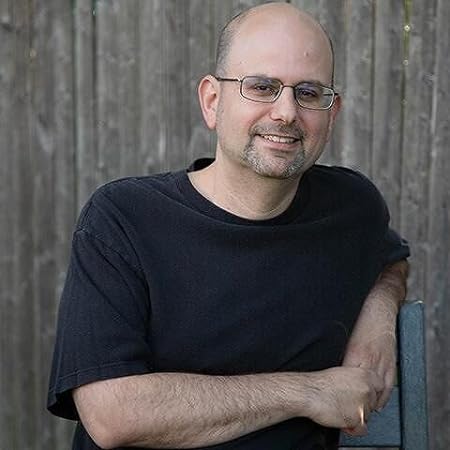Author of Déjà View
I am excited to chat with fellow BookFest award winner, Michael Thomas Perone, about his YA Science fiction novel, Déjà View.

Helen: Many congratulations, Michael, on your gold medal and getting your book up in lights in Times Square. It is so exciting! Tell us about your award winning book, Déjà View.
Michael: Déjà View is about a 12-year-old boy named Bobby Dalton who doesn’t want to grow up. All his life, he has relied on the imaginary games of childhood with his best friends Joe and Max to get him through the tough times. But this all changes when his Seventh-Grade class buries a time capsule to commemorate the end of the 1980s. Now Bobby is being haunted by visions: ghostly doppelgangers of himself, his friends, and others. He calls them “déjà view.” Are these visions real, or has his imagination finally gotten away from him? And if they’re real, what do they want? Bobby needs to figure this all out to survive his childhood…and his life.
Helen: You have chosen quite an atmospheric cover design. What were your thoughts behind the design?
Michael: The cover is a slightly spooky image of my three main characters burying something under the cover of moonlight. I wanted readers who first glanced at the cover to become intrigued and ask themselves, “What are these kids burying?” and hope that this inspired them to read the back cover copy to get some clues. I wanted the boys to be in shadow because this reinforces the book’s theme of ghostly doppelgangers. (Bobby calls them “shadows.”) Also, I wanted to have the title superimposed so that it would appear it had its own shadow (again, emphasizing the theme of doubles in the book). I gave these ideas to my publisher, and I think they did a great job. Since I’m a writer and not an artist, though I originally wanted to be a cartoonist when I was a kid, one thing I hadn’t thought of was the color of the cover, and I was very pleased when it came back. I think the dark blues and purples really make the cover pop and help convey the overall spooky vibe of the book.
Helen: It works!! I love finding out the detail behind the cover design, because their is a lot of thought put into it than many readers realise and understanding the thought process makes the cover even more meaningful. How did you come up with the book title?
Michael: The original title was just Déjà Vu, but after a quick Amazon search, I discovered only about a million books already have that title. (That’s just a slight exaggeration.) So I changed it to Déjà View and had Bobby come up with this name since these repeated visions of his are things that he’s actually seeing, not just feeling. (There’s also a running gag in the book that he keeps misspelling and mispronouncing things; he is a kid after all.) There are still a few books out there with this title, so to differentiate it even further, I gave the book a subtitle: A Kid Nightmare, since I consider this a companion book to my debut novel Danger Peak, which also had a subtitle, A Kid Adventure, though I should say Déjà View isn’t a sequel to that book. There is, however, a very brief cameo from the kids of Danger Peak, but it’s so short, if you blink while reading the sentence, you might miss it.
Helen: You know, I hadn’t even noticed the change in spelling until you said!! The mind just reads it as Vue as that is what you expect! Why did you write this particular book?
Michael: My first book was more or less about the death of my brother, and I wanted to write about another kind of death, the death of childhood. I knew the book would be more ambitious, cover more ground, be longer, and take place over a longer period of time than Danger Peak, but I also wanted to answer a question: “How exactly does childhood die?” We know the broad brushstrokes, but I’m a very detail-oriented person, and I wanted to know, just for myself, how precisely does it happen? To answer the question, I searched through old diaries of mine, and I also just have a really good memory of this time in my life. Almost everything that happens in the first half of the book happened to me in real life (with exaggerations of course to make it more entertaining for the reader). The second half, what I jokingly call “the crazy half,” is when Bobby starts seeing his visions, so the story is a slow burn, but I hope it’s worth it. And I did discover the answer to my question, but I think I’ll keep it to myself for now. Or you can just read my book!

Helen: They always say write from experience. Though I write epic fantasy, so I can’t say that I’ve experienced epic battles!! When did you realise you had a passion for writing?
Michael: I’ve been writing stories basically since I was taught the alphabet. I used to bring my stories into school in third and fourth grade and read them in front of the class. At the time, I thought everyone was doing this. I would ask my friends what stories they were working on, and they assumed I was talking about homework. Despite this, I never considered myself seriously as a writer until the mid-2000s when my whole life imploded. In less than a year, I lost my girlfriend, my roommate, my apartment, and my job and was forced to move back home. I was wondering what to do with my life, and my Mom suggested I write. I blew her off, but she reminded me that when I was a kid, I would write story after story in my bedroom. “No one told you to do that, Michael,” she said. “You did that yourself.” The rest, as they say, is history, though I should say my writing doesn’t pay the bills. I’m not Stephen King…yet!
Helen: Life changes do seem to be a catalyst for putting pen to paper. Which genre do you write and why?
Michael: I write young adult for several reasons. I’m never going to be a genius author who can write a 1,000-page book with over a hundred characters; my books are a little over 200 pages each and have six or seven main characters. That’s about as much as my brain can handle per book, and young adult tends to be shorter with fewer characters. The other reason is that I tend to think like someone in junior high; I have a very child-like sensibility, much to the consternation of my family, but that helps me identify with my characters more.
As for the genre of action-adventure, in the case of Danger Peak, or sci-fi, for Déjà View, those genres just generally interest me as a reader and film lover. I was a child of the ‘80s raised by Steven Spielberg and George Lucas after all.
Finally, I love the genre of magical realism for a similar reason of why I write young adult. It’s too much for my brain to handle a world where everything is magical, like Harry Potter or Lord of the Rings. I can only handle one magical thing per book, like the supernatural mountain in Danger Peak or the ghostly visions in Déjà View. I like playing with that one magical idea and seeing how it affects my characters and their more-or-less real world.
Helen: Your books do sound intriguing. Who is your favourite character?
Michael: By far, my favorite character is Bobby’s therapist Dr. Pann. Without giving too much away, he’s more complex than at first glance, and he was a lot of fun to write, especially playing with the different shades of his personality. I also gave him some of the best lines in the book.

Helen: Let’s switch to your writing process. Which part of the writing process do you find most challenging?
Michael: I think most writers would probably say sitting down and doing the actual writing, but, not to sound obnoxious, I don’t usually get writer’s block. The hardest part for me is structuring the story, so I guess, in a way, you can say I get “story structure block,” to coin a phrase. I can come up with a good idea to sustain a novel-length story and have no problem developing the characters. Also, as writer-director John Hughes once said, “I can write dialogue as fast as I can say it,” but putting all that together into a good beginning, middle, and unexpected yet satisfying end is the hardest part for me. For example, it took me almost a year thinking about Déjà View to come up with the ending, and even then, it came to me in a dream. Once I figure out the story though, I’m off and running and usually finish the first draft within 3 to 4 months.
Helen: So do you plan out your story in advance, or do you find you write better on the fly, so to speak?
Michael: This goes hand in hand with my last answer. I used to write “by the seat of my pants” when I was a kid and just make it up as I went along. That worked with a few stories but not with most. They usually ended with a conclusion that may have been unexpected but definitely wasn’t inevitable or satisfying to read. As an adult, I learned to outline my stories, something I used to hate doing in English class but is something I’ve learned is necessary if you want to write a truly memorable story that doesn’t cheat the reader. There’s no, as they say, deus ex machina that comes in to save the day at the end of my stories. The characters either naturally solve the problem on their own or they face the consequences of the decisions they’ve made all throughout the story (or both). That said, this doesn’t necessarily mean I have everything figured out in the story when I begin writing, especially the dialogue. That part I like making up as I go along, and I think that also helps it sound more natural, like how real people talk.
Helen: I’ve found that the more I write, the more I plan the framework in advance. Now whether I follow the plan is another matter! Having completed and published Déjà View, what else are you working on?
Michael: I’m working on a collection of my favorite short stories I’ve written over the years. When I was putting it together, I was afraid the reader would ping-pong between different themes (if you read Déjà View, you’ll know theme is a big deal for me), but either by coincidence or sheer luck, the stories I chose have pretty much the same theme: a sane person trying to live in an insane world. It’s definitely the craziest thing I’ve ever written, and that’s saying something after my last book. The best part for readers is that if they don’t like one story, they can just skip to the next one.
Helen: Thank you so much for spending time with me today. Congratulations again on your BookFest award. Just to close us out, what piece of writing advice to find most useful and would share with aspiring authors?
Michael: My real, full-time job is a Senior Editor in Manhattan, so it’s very difficult for me to take off my editing hat when I’m writing, but a college professor once told me to just concentrate on the writing first. Then, after you’re finished, you can put on that editing hat and get to work. But it still remains a struggle, at least for me, switching between both worlds. Sometimes I try to edit a sentence as I’m writing it, and I have to remind myself to stop.
About the Author

Michael Thomas Perone
Michael Thomas Perone is an award-winning author who has written for The Baltimore Sun, Baltimore City Paper, Long Island Voice (a spinoff of The Village Voice), and others. Online, he has written for Yahoo!, WhatCulture!, and other websites that don’t end with an exclamation mark. His debut novel Danger Peak was called “the perfect teenage boy crusade” by Publishers Weekly and “a compelling bildungsroman about grief and finding wisdom” by Kirkus Reviews. If nothing else, he learned the word “bildungsroman” from the experience. His follow-up, the coming-of-age/sci-fi mindbender Déjà View, won First Place at The Spring 2024 BookFest Awards in the category of Young Adult – Literary and Coming of Age. It was also a finalist of The 2024 Eric Hoffer Book Award. He works as a Senior Editor in Manhattan and lives on Long Island with his wife and two daughters.
Follow Michael:
Twitter/X
Purchase Michael’s book: Deja View
Link to book on Amazon UK: eBook | Paperback
Link to book on Amazon US: eBook | Paperback
As an Amazon Associate I may benefit from purchases made using these links.
If you enjoy epic fantasy then check out my award winning Sentinal series, which is now complete. If you like fantasy books with a touch of romance then you will love my SoulMist series, start with SoulBreather. Prefer Dystopian Science Fantasy? Then try Harmony. Start the adventure and stay for the journey.
Sign up to my newsletter and download a free novella called Sentinals Stirring and get notified when my next books are published.
By clicking the sign up button above, you agree to share your email address with the site owner and the newsletter platform provider to receive marketing, updates, and other emails from the site owner. Use the unsubscribe link in those emails to opt out at any time.
By signing up to my newsletter, you agree to receive commercial information from Helen Garraway, located at 61 Bridge St, Kingston, Hertfordshire, UK (Data Administrator). You can withdraw your consent at any time. The data will be processed until the consent is withdrawn.
One thought on “Author Interview – Michael Thomas Perone”